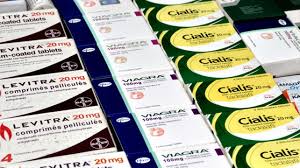
Eliquis: Understanding Its Role in Anticoagulation Therapy
Eliquis is a leading anticoagulant medication that plays a crucial role in the prevention of thromboembolic events. Patients and healthcare professionals alike must understand the importance of this drug, as well as its implications for various conditions. As you navigate through this article, you’ll discover critical information about Eliquis, its mechanisms, benefits, and considerations in its usage. For further convenience, you can Eliquis https://farmakeioorama.gr/agoraste-eliquis-se-apeytheias-syndesi-choris-syntagi/.
What is Eliquis?
Eliquis, generically known as apixaban, is a direct oral anticoagulant (DOAC) that is primarily prescribed to reduce the risk of stroke and blood clots in patients with non-valvular atrial fibrillation, and for the treatment and prevention of deep vein thrombosis (DVT) and pulmonary embolism (PE).
How Eliquis Works
Eliquis functions by inhibiting Factor Xa, an essential component in the blood coagulation cascade. By blocking this factor, Eliquis effectively reduces the ability of the blood to clot, thereby lowering the risk of thrombus formation.
Indications for Use
Eliquis is indicated for a variety of clinical scenarios:

- Atrial Fibrillation: Patients with non-valvular atrial fibrillation are at an increased risk for ischemic stroke and systemic embolism; Eliquis helps mitigate this risk.
- Deep Vein Thrombosis (DVT) and Pulmonary Embolism (PE): Eliquis is used for the treatment of DVT and PE, as well as for reducing the risk of recurrence after initial treatment.
- Postoperative Patients: It is often prescribed for patients who have undergone hip or knee replacement surgery, aimed at preventing DVT and PE.
Dosing and Administration
The dosing of Eliquis is individualized based on the patient’s clinical condition and renal function. It is taken orally, twice daily, with or without food. It is essential for patients to adhere to their prescribed regimen to maintain effective anticoagulation.
Benefits of Eliquis
Eliquis presents several advantages over traditional anticoagulants such as warfarin:
- No Routine Monitoring: Unlike warfarin, patients taking Eliquis do not require regular blood tests to monitor INR levels.
- Predictable Pharmacokinetics: Eliquis demonstrates predictable absorption and anticoagulant effects, making it easier to manage dosage.
- Reduced Risk of Certain Major Bleeding Events: Studies have shown that Eliquis may have a lower risk of intracranial hemorrhage compared to other anticoagulants.
Potential Side Effects
As with all medications, Eliquis comes with potential side effects. The most notable are:
- Bleeding: As an anticoagulant, Eliquis increases the risk of bleeding, which can manifest as easy bruising, prolonged bleeding from cuts, or more serious internal bleeding.
- Allergic Reactions: Though rare, some patients may experience hypersensitivity reactions, including rash, itching, or breathing difficulties.
Who Should Not Take Eliquis?
Certain groups of individuals should avoid Eliquis, including:

- Those with active bleeding disorders
- Patients with severe renal impairment
- Individuals with a history of hypersensitivity to apixaban or any of its components
Interactions with Other Medications
It is critical for patients to inform their healthcare providers about all medications they are taking, including over-the-counter drugs and supplements. Certain medications can significantly affect the efficacy and safety of Eliquis, including:
- Other Anticoagulants: Combining Eliquis with other anticoagulants may increase the risk of bleeding.
- Inducers/Inhibitors of CYP3A4: Drugs that affect the cytochrome P450 system can alter Eliquis metabolism.
Monitoring While on Eliquis
Patients taking Eliquis do not require regular blood monitoring like those on warfarin; however, it is essential to have regular follow-ups with healthcare providers to assess the medication’s ongoing effectiveness and any potential side effects.
Conclusion
Eliquis represents a significant advancement in the management of anticoagulation therapy. Its efficacy, combined with the convenience of oral administration and absence of routine monitoring, makes it a preferable choice for many patients at risk for thromboembolic events. However, like all medications, it requires careful patient management, adherence to prescribed dosing, and vigilance for potential side effects. For those considering Eliquis or currently using it, discussing with a healthcare provider is crucial in ensuring safe and effective treatment.